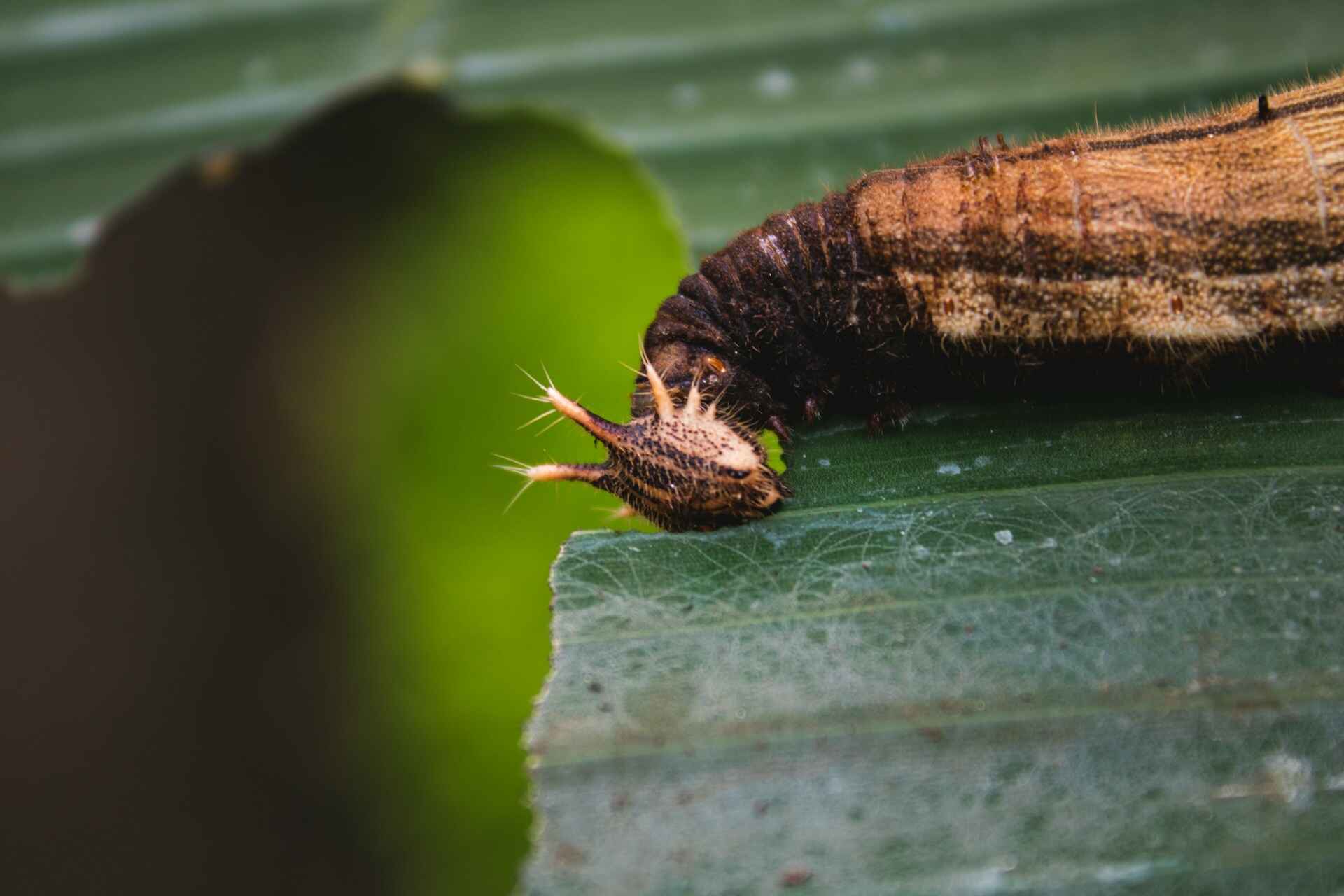Insects can be a real pain for anyone tending to their garden. Whether you just started with a few pots or have a full vegetable garden going on, you’ve probably seen the damage insects can do. Leaf holes, chewed up edges or even entire plants disappearing overnight – these are the signs that bugs are having a party. The good news is you don’t have to reach for the chemical pesticides. There are several natural, safe and effective ways to keep bugs from eating your plant leaves. Let’s get into How To Stop Insects Eating Plant Leaves Naturally and help them grow.
Insect Behavior
Before we get into the remedies, it helps to know why insects are targeting your plants. Different bugs are attracted to different plants based on plant health, smell or nutrient content. Healthy plants can defend themselves better against pests, while stressed or weak plants release distress signals that attract more insects to eating your plants. Keeping your plants in top shape is the first line of defense. Proper watering, soil health and nutrient balance will help to stop insects eating plant leaves naturally be more pest resistant.
Many insects feed on plant sap, leaves or roots. These include aphids, caterpillars, beetles and leafhoppers among others. Knowing what type of insect is causing the damage will help you choose the best natural remedy to deter them.
Companion Planting: Nature’s Pest Control
One of the best ways to naturally keep bugs from eating your plant leaves is by companion planting. This has been around for centuries, as certain plants repel insects with their scent or chemicals. For example, marigolds keep aphids and beetles away, basil keeps mosquitoes and flies away, nasturtiums act as a trap plant for aphids and lure them away from other plants.
Here are some:
- Marigolds: Repel aphids, beetles, nematodes.
- Lavender: Repels moths, fleas, flies.
- Basil: Keeps mosquitoes and flies away, great for tomatoes.
- Mint: Repels ants, cabbage moths, aphids.
- Chives: Repels aphids and other sap sucking insects.
Plant these alongside your vegetables, herbs or flowers and you’ll have a natural barrier against insect infestations and added diversity and beauty to your garden.
Neem Oil: The Organic Pest Killer
Neem oil from the neem tree is a popular and powerful natural pest killer that works on many insects. It doesn’t harm beneficial insects so it’s an eco friendly way to protect your plants. Neem oil works by disrupting the hormones of insects so they can’t feed and reproduce.
To use neem oil:
- Mix 2 teaspoons of neem oil with 1 teaspoon of mild liquid soap (as a surfactant) in a quart of water.
- Spray this on the affected plants, make sure to cover both the top and bottom of the leaves.
- Reapply every 7 to 10 days or after it rains for continued protection.
Neem oil works on aphids, whiteflies, caterpillars and beetles. While it works over time, consistency is key to keep pests away from your plants.
DIY Soap Spray: The Simple Solution
Another natural way to stop insects from eating plant leaves is a simple soap spray. Soap disrupts the insects’ cell membranes and can suffocate small pests like aphids, spider mites and whiteflies. It’s easy to make at home with common ingredients.
To make your own insecticidal soap:
- Mix 1 tablespoon of liquid dish soap (make sure it’s fragrance free and free of harsh chemicals) with a quart of water.
- Pour the mixture into a spray bottle and spray on your plants, on the leaves and stems where the insects hide.
Don’t overuse soap sprays as it can cause leaf burn if used in high concentration or too frequently. Always test a small area of your plant before spraying the whole thing and spray in the early morning or late afternoon to avoid direct sunlight.
Diatomaceous Earth: A Physical Barrier
Diatomaceous earth (DE) is another natural way to deter insects. Made from the fossilized remains of diatoms, this powder is harmless to humans and pets but deadly to soft bodied insects. When insects come into contact with DE, it dehydrates them and they die.
To use diatomaceous earth:
- Lightly dust the affected plants with food grade DE where insects are present.
- Reapply after it rains or if you water your plants overhead as DE becomes less effective when wet.
DE is good for crawling insects like slugs, beetles and some larvae. Safe for edible plants just wash your produce before eating.
Essential Oils: A Scent Based Deterrent
Many essential oils are insect repellent so they are a natural way to protect your plants from pests. Oils like peppermint, rosemary and eucalyptus are great at deterring common garden insects. These oils smell nice and will keep ants, aphids and beetles away from your plants.
To make a simple essential oil spray:
- Mix 10-15 drops of your chosen essential oil (peppermint or rosemary are good options) with a quart of water and a few drops of dish soap.
- Spray on your plants leaves making sure to cover all surfaces.
Essential oils break down quickly so you’ll need to reapply every few days or after rain or watering.
Beneficial Insects: Let Nature Do The Work
Introducing beneficial insects into your garden is another natural way to combat pests. Ladybugs, lacewings and predatory beetles are your best friends when it comes to controlling aphids, spider mites and other soft bodied insects. These beneficial bugs eat the harmful pests keeping their populations under control without the need for chemical pesticides.
Attract beneficial insects by planting flowers like dill, fennel and yarrow which provide nectar and pollen. You can also purchase live beneficial insects to release in your garden to ensure a strong population of pest eaters.
Row Covers and Barriers: Physical Barrier
Sometimes the simplest solution is to prevent pests from getting to your plants in the first place. Row covers, mesh screens and garden netting are a physical barrier that keeps insects out while allowing light, air and water to reach your plants. These barriers are great for flying insects like cabbage moths, leafhoppers and beetles.
When using row covers:
- Put them over your plants early in the growing season before pests arrive.
- Anchor the edges to the ground to prevent insects from getting underneath.
- Choose lightweight breathable material that won’t damage the plants.
Remember to remove the covers once your plants begin to flower, as some insects like bees are necessary for pollination.
Homemade Garlic Spray: Smelly but Works
Garlic is stinky and that’s what keeps many insects away. You can make a garlic spray to protect your plants from aphids, whiteflies and caterpillars.
To make a garlic spray:
- Blend 2 garlic bulbs with a quart of water.
- Let it sit for 24 hours to let the garlic infuse.
- Strain and add 1 tablespoon of liquid soap to help it stick to the leaves.
Spray this on your plants every week or after rain for continued protection. The smell will keep many pests away and is harmless to your plants and the environment.
Companion Plants for Pests: More
Beyond marigolds and lavender, here are more companion plants that can naturally deter insects from eating your leaves:
- Onions and Garlic: Their smell repels many insects including aphids and slugs.
- Thyme: Repels cabbage worms and whiteflies.
- Rosemary: Good for cabbage moths, beetles and aphids.
Mulching: A Barrier for Ground Crawlers
Mulching improves soil health by retaining moisture and adding nutrients and can also act as a barrier for crawling insects. A thick layer of mulch makes it hard for insects like slugs, snails and beetles to get to your plants. Some mulches like cedar repel pests due to their strong smell.
When mulching:
- Spread 2-3 inches around the base of your plants.
- Don’t pile mulch against the stems to prevent moisture issues.
By mulching your garden you’re protecting your plants from pests and drought.
Conclusion: Holistic Approach
Using multiple natural pest control methods will give you the best results when trying to stop insects from eating your plant leaves. By focusing on plant health, using natural sprays like neem oil and garlic, attracting beneficial insects and physical barriers you can have a pest free garden without using harsh chemicals.
This holistic approach means you’re not only protecting your plants but also the ecosystem where plants and beneficial insects can thrive.

